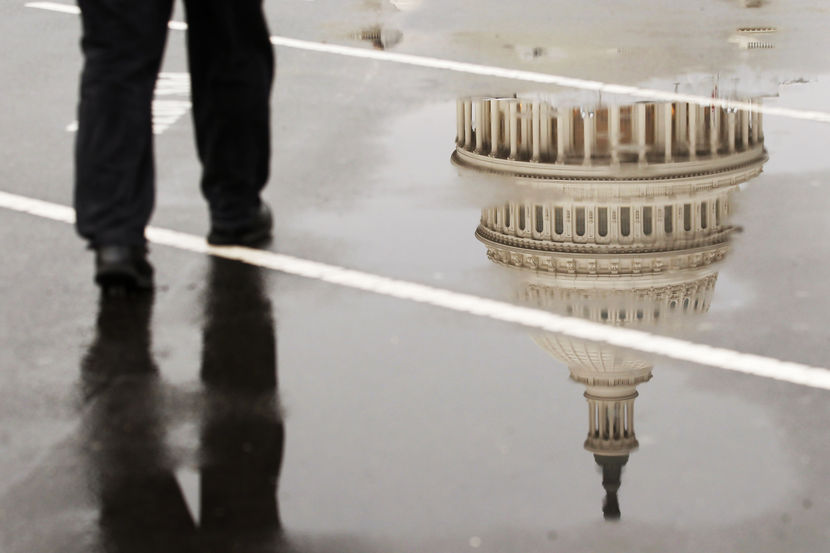As part of the federal response to the coronavirus crisis, Congress approved an $8.3 billion emergency bill last week, specifically intended to address concerns related to public-health infrastructure. No one seriously believed it would be lawmakers’ final word on the subject.
And it wasn’t. Late last week, House Speaker Nancy Pelosi and Treasury Secretary Steven Mnuchin negotiated a second package, called the Families First Coronavirus Response Act, with funding for free coronavirus testing, enhanced unemployment insurance, food assistance, and limited paid leave. Donald Trump endorsed the bill, which passed the House just after midnight on Saturday morning. Forty members voted against it, and all 40 were Republicans.
At that point, the process got a little tricky. For one thing, Senate Majority Leader Mitch McConnell (R-Ky.) gave his chamber the weekend off. For another, there was a glitch in the House bill, which needed to be resolved before the legislation could advance. Because the House is out this week, the fix would need to be approved by a unanimous-consent request, which Rep. Louie Gohmert (R-Texas) spent much of yesterday blocking. Eventually, the Texan relented.
The House on Monday night passed a bill containing technical corrections to the coronavirus relief bill it passed over the weekend, sending it to the Senate to be considered for a vote at some point this week. Around 8:10 p.m. ET, the House passed the corrections by unanimous consent during a pro forma session since the lower chamber is on recess this week.
So, problem solved? Maybe. Roll Call reported overnight that the bill “is on track despite concerns among the GOP rank-and-file.” Some Senate Republicans indicated yesterday that they intended to make significant changes to the bill, which would require sending the proposal back to the House, which in turn would take more time.
McConnell said yesterday, however, that he intends to pass the House bill, as is. Donald Trump has said he’ll sign it.














